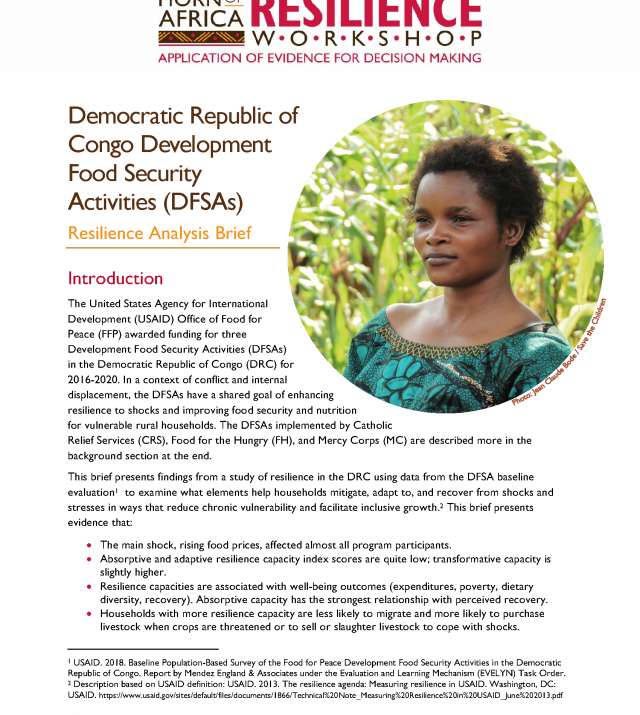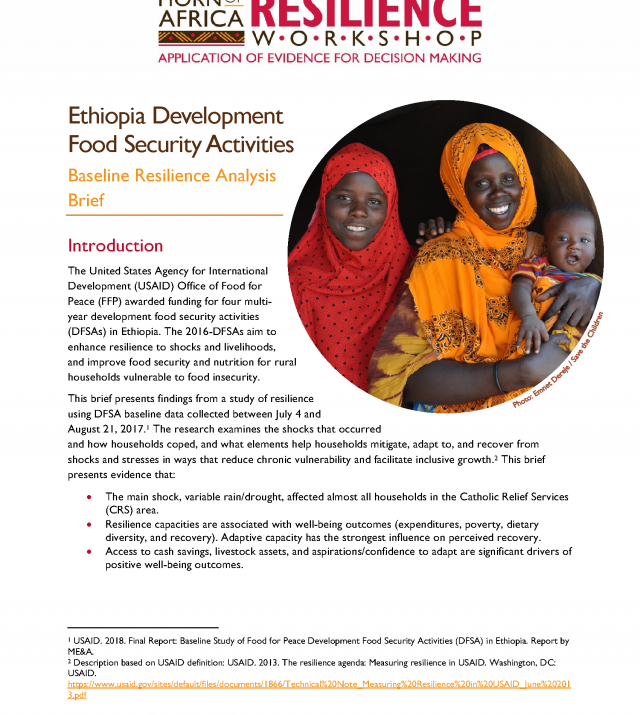
Somalia Resilience: Recurrent Monitoring Survey Brief

This brief presents findings from a two-year study of resilience in Somalia, a follow-up to the baseline study of the Enhancing Resilience and Economic Growth in Somalia (EREGS) program. Communities in the study area were served by one of three resilience-building projects under EREGS from 2014-2017.
The current study examines how the three resilience capacities—absorptive, adaptive, and transformative—helped households in the study area mitigate, adapt to, and recover from shocks and stresses. It provides important insights into how households were able to improve food security and recover from drought despite prolonged exposure to a shifting array of climate, economic, employment, and health shocks, including “downstream” shocks such as un/under-employment, crop disease, food and input price shocks, and chronic disease. The study analyses three well-being outcome measures: Household Food Insecurity Access Scale (HFIAS); moderate to severe household hunger, computed using the Household Hunger Scale (HHS); and households’ perception of their recovery from drought.

